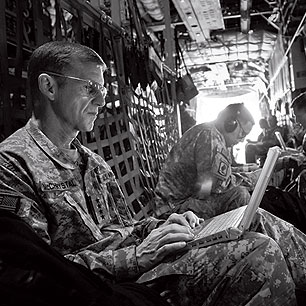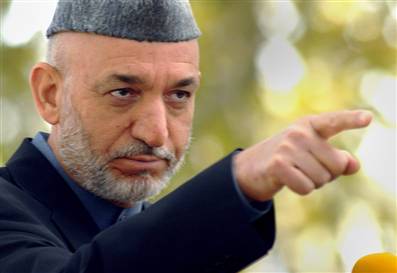Kissinger's prescription on Afghanistan
 Friday, July 16, 2010 at 12:10AM
Friday, July 16, 2010 at 12:10AM  Kissinger in WAPO a while back. [Sorry, but recent travels have made it hard for me to work my inbox.]
Kissinger in WAPO a while back. [Sorry, but recent travels have made it hard for me to work my inbox.]
For regular readers of the blog, many of whom sent me the piece, there is plenty of familiar logic.
The core arguments (underlined for emphasis by me):
Afghan strategy needs to be modified in four ways. The military effort should be conducted substantially on a provincial basis rather than in pursuit of a Western-style central government. The time scale for a political effort exceeds by a wide margin that available for military operations. We need a regional diplomatic framework for the next stage of Afghan strategy, whatever the military outcome. Artificial deadlines should be abandoned.
A regional diplomacy is desirable because our interests coincide substantially with those of many of the regional powers. All of them, from a strategic perspective, are more threatened than is the United States by an Afghanistan hospitable to terrorism. China in Sinkiang, Russia in its southern regions, India with respect to its Muslim minority of 160 million, Pakistan as to its political structure, and the smaller states in the region would face a major threat from an Afghanistan encouraging, or even tolerating, centers of terrorism. Regional diplomacy becomes all the more necessary to forestall a neocolonial struggle if reports about the prevalence of natural resources in Afghanistan prove accurate.
Afghanistan becomes an international issue whenever an outside power seeks to achieve unilateral dominance. Inevitably, this draws in other parties to establish a countervailing influence, driving events beyond rational calculation. A regional diplomacy should seek to establish a framework to insulate Afghanistan from the storms raging around it rather than allow the country to serve as their epicenter. It would also try to build Afghanistan into a regional development plan, perhaps encouraged by the Afghan economy's reported growth rate of 15 percent last year.
Military operations could be sustained and legitimized by such diplomacy. In evaluating our options, we must remember that every course will be difficult and that whatever strategy we pursue should be a nonpartisan undertaking. Above all, we need to do justice to all those who have sacrificed in the region, particularly the long-suffering Afghan people.
Nothing to add, except that I see little of this logic from Team Obama to date, although Petraeus gives every indication that he thinks along these lines.
 Afghanistan,
Afghanistan,  US foreign policy | in
US foreign policy | in  Citation Post |
Citation Post |  Email Article |
Email Article |  Permalink |
Permalink |  Print Article
Print Article 




























